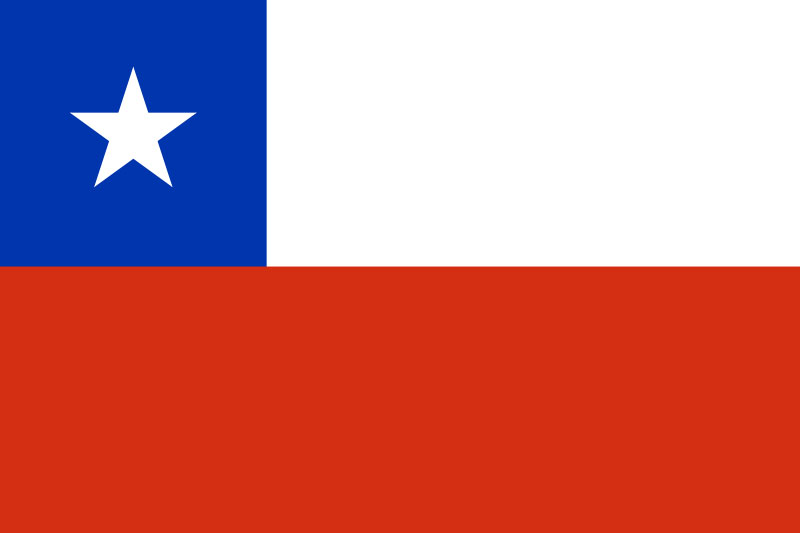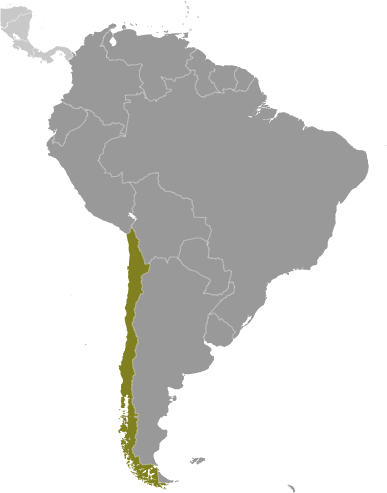-
17 March 2014
The outgoing administration of President Sebastián Piñera’s in Chile allowed government employees to delete personal emails before leaving office, later backpedaling under pressure. A controversy erupted after the newspaper El Mostrador March 10 disclosed the existence of Supreme Decree 14, signed in mid-January but not published until Feb. 27, overturned a 2004 regulation on electronic […]
-
17 March 2014
Requests for municipal information in Chile that were made through an automated system run by the civil society group Ciudadano Inteligente were more likely to get positive results than requests submitted through normal channels, according to research by Cristobal Marshall. Ciudadano Inteligente several years ago launched http://www.accesointeligente.org/, an online FOIA liaison platform that has aimed […]
-
5 February 2014
The Chilean Supreme Court has declared as proprietary information the names of the lawyers who represented Chile in Court of International Justice in The Hague in a case involving a maritime claim by Peru. The Supreme Court’s unanimous decision (in Spanish) also denied access to information about fees paid to the lawyers. In doing so, […]
-
8 November 2013
The Chilean Supreme Court of Justice has ordered the Ministry of Transport to release e-mails from public officials related to the modification of the public urban transport system in Santiago. The Supreme Court decided Nov. 6 that the disclosure of the e-mails about the Transantiago contracts doesn´t violate the privacy of the officials and that […]
-
10 October 2013
The Senate in Chile has moved toward the adoption of amendments to the law on access to public information, according to media reports and the Pro Accesso advocacy group. The amendments would restrict access to official e-mails, critics say. The bill also touches on many procedural elements of the current law. The House has not […]
-
29 March 2013
A group of Chilean senators has proposed to add a right to information to the Chilean Constitution. The proposal was made by senators Hernan Larrain, Isabel Allende, Soledad Alvear, José Ruminot Garcia and Eugenio Tuma and was sent to the Constitution Committee for further discussion. The three-year-old access to public information law needs buttressing, the […]
-
22 January 2013
The Supreme Court of Chile has ordered two government agencies to disclose information that was sought by the Transparency Council. The Supreme Court ordered the Securities and Insurance Superintendency (Superintendencia de Valores y Seguros) to disclose the names of the public servants who are shareholders of the businesses they regulate. In another decision, the court […]
-
21 November 2012
Chile’s General Secretary of the Presidency has announced an Open Government Presidential Directive establishing an open data policy and encouraging governmental institutions to proactively publish their data and information. The announcement mandates that open government data must be published on a portal: http://datos.gob.cl/ The directive by President Sebastián Piñera “marks an unprecedented commitment” to the […]
-
19 September 2012
The Constitutional Court in Chile has rejected making public the emails of officials. The decision (in Spanish) revoked a Transparency Council decision and is considered a blow to the right of access to information. The court declared that emails are not covered by Article 5 from the Transparency and Access to Information Act which states in […]
-
7 September 2012
Latin America: Alianza Regional por la Libre Expresión e Información has created a new website: http://www.alianzaregional.net/, in Spanish. Alianza Regional is a coalition of 22 organizations of 19 countries of the Americas that promote access to public information and freedom of expression through the continent. Latin America: The Department for Effective Public Management (DGPE) of […]
-
10 August 2012
By Dolores Lavalle Cobo Lavalle Cobo is an Argentine lawyer, member of Centro para la Información Ciudadana (Center for Citizen´s Information) and author of books and articles. The Chilean Government published Decree No.155 on July 26 ordering the confidentiality of the legal services hired by the National Directorate of International Limits and Boundaries. The Directorate is a division of […]
-
12 July 2012
By Dolores Lavelle Cobo Lavalle-Cobo is an Argentine lawyer, member of Centro para la Información Ciudadana (Center for Citizen´s Information) and author of books and articles. The right of access to public information as a fundamental right is not an absolute one. Its exercise has specific limitations. Nevertheless, in its implementation and application to concrete […]
-
15 June 2012
Two reports have been prepared addressing transparency in Chilean cities. A report entitled “Challenge of Transparency in Municipalities,” prepared by the lawyer Daniela Cañas, provides a comprehensive analysis of the causes and problems of transparency in municipalities. The report “Barriers of Access to Public Information City 2012” was done by Pro Acceso Foundation and studies […]
-
14 June 2012
Pro Acceso Foundation and Paz Ciudadana Foundation have published a report (in Spanish) called “Access to Public Information and Public Safety in Chile.” The paper argues that access to public information should be understood not only as a mechanism to ensure probity in public administration, also as “a necessary condition for the construction of a […]
-
24 June 2011
An extensive new report examines access to information policies and practices in seven Latin American countries: Argentina, Bolivia, Chile, Ecuador, Mexico, Peru and Uruguay. The report is titled “?Venciendo la Cultura del Secreto. Obstáculos a la implementación de políticas y normas de acceso a la información en la región?” (“Overcoming the culture of secrecy. Obstacles […]
-
16 May 2011
A study of the two-year old Transparency Act in Chile by Pro Access and Participate has identified problems with using the internet to make requests for information. They studied 169 organizations and found that only 47% of the time could applications be made ??via the internet. Moreover, 71% of the requestors faced problems with the […]
-
20 April 2011
By Emilene Martínez Transparency Programs Coordinator at the National Security Archive Diverse activities will be held in Chile the week of April 18 to commemorate the second anniversary of Chile’s Access to Information Law – among them the signing of a draft of a Public Probity Law by President Sebastián Piñera; an International Seminar in […]
-
20 April 2011
By Gabriela Ruiz Gabriela Ruiz es Investigadora Visitante del Archivo de Seguridad Nacional en Washington DC; se desempeña como Jefa de la Unidad de Acceso a la Información del Instituto de Transparencia de Chiapas. Para conmemorar el segundo aniversario de la Ley 20.285 de Acceso a la Información Pública de Chile y de la instalación […]
-
18 April 2011
By Emilene Martínez On April 15, the Council for Transparency (Consejo para la Transparencia) and the General Secretariat of the Presidency signed an agreement to develop a Transparency Web Portal. The signing ceremony took place at Palacio de La Moneda and was attended by Chilean government officials, members of the Council and representatives from civil […]
-
6 April 2011
A two-day conference in Chile will be conducted April 20-21 with the title, “Transparency as Modernization of the State; experiences, key actors and challenges.” Being held at the Catholic University of Chile in Santiago, the conference is scheduled to begin with remarks by Chilean President Sebastián Piñera and the President of the Council for Transparency, […]
-
7 October 2009
Open government advocates offer first-hand accounts of FOI promotion in Latin America Latin America’s leading open government advocates recently released a report, bringing together data from 17 countries and offering new findings on the status of freedom of information in the region. The Regional Alliance for Freedom of Expression and Information (Alianza Regional para la […]
-
25 August 2009
By Jesse Franzblau and Emilene Martinez-Morales Washington, DC — The US government’s August 24, 2009, release of a controversial CIA 2004 Inspector General report on torture brings new attention to the issue of how information on human rights abuses is treated and should be treated under freedom of information laws. Deadlines set by a federal […]
-
19 June 2009
By Greg Michener In the last year or so, Latin America has been abuzz with news on right-to-know campaigns. But some countries have been buzzing louder than others. Uneven media attention to transparency policy is a global phenomenon with serious implications for institutional effectiveness, especially given the significant connection between news coverage and the strength […]
-
19 May 2009
By Greg Michener 2008 was a big year for freedom of information movements in Latin America. Three countries passed access to information laws last year (Uruguay, Chile, and Guatemala), officially institutionalizing the publics right to know. Varying degrees of media attention, however, had a significant effect on the relative strength of each law. I have […]
-
21 April 2009
Santiago, Chile Yesterday Chiles Transparency and Access to Public Information Law (Law 20.2285) came into force, marking a significant step toward making the Chilean government more transparent and responsive to the Chilean people. The law applies to all levels of government, from the federal ministries to the municipal governments, including the armed forces, the police, […]
-
27 March 2009
By Peter Kornbluh Special thanks to Marianna Enamoneta, Emilene Martinez-Morales, Carly Ackerman, Joshua Frens-String and Yessica Esquivel Alonso On April 20th, Chile will become the most recent country to have a functioning Freedom of Information Act—and potentially establish a leading model for new access to information laws around the world. The new “Law of Transparency […]
-
28 September 2008
Washington, D.C., September 28, 2008 – Today’s celebration of International Right-to-Know Day marks a new watershed in the global reach of freedom of information laws – now on the books in more than 80 countries – and features celebrations in countries ranging from Mexico to Moldova, according to postings today on the www.freedominfo.org virtual network […]
-
28 September 2008
Silvina Acosta – Program Manager, Trust for the Americas Emilene Martínez-Morales – Transparency Programs Coordinator, National Security Archive Washington DC, – The Right to Know made headlines in Latin America during the past year. Just a few days ago the Guatemalan Congress approved an Access to Information Law. Chile’s Transparency and Access to Information Law […]
-
13 August 2008
Chile has become the latest country in Latin America and the world to promulgate a Freedom of Information Act law. Called the "Ley sobre Transparencia de la Función Pública y Acceso a la Información de los Órganos de la Administración del Estado" (Law on Transparency of Public Functions and Access to Information of the Agencies […]
-
12 October 2006
In the first decision of its kind from an international tribunal, the Inter-American Court of Human Rights ruled yesterday that there is a fundamental human right to access government information. In the case of Claude Reyes and others vs. Chile, the Court found in favor of three environmental activists who in 1998 sought information from […]
-
22 March 2006
By Toby McIntosh Riding a wave of transparency, the idea of encouraging Freedom of Information (FOI) laws as part of the development agenda is gaining currency, but slowly. With research and case studies increasingly identifying transparency as a key tool in fighting corruption and facilitating development, more attention is being paid to the development of […]
-
28 September 2005
Since 2002, freedom of information advocates around the world have been working together to promote the right of access to information for all people and recognize the benefits of transparent and accountable governments. We use this day as a way to share ideas, strategies and success stories about the development of freedom of information laws […]





















